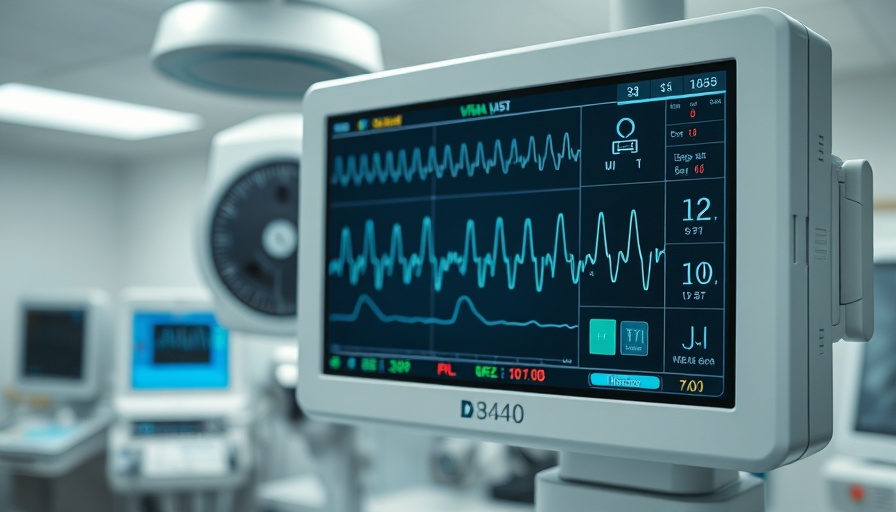
Revolutionizing Kidney Health Screening with Technology
The landscape of healthcare continues to evolve, especially in the realm of diagnostic tools. A recent study highlights the transformative potential of smartphone technology with a focus on early detection of kidney disease through albuminuria screening. This innovative approach is particularly vital for individuals with diabetes or hypertension, two populations at heightened risk for kidney complications.
Understanding Albuminuria and Its Significance
Albuminuria, defined as the presence of albumin in the urine, serves as a critical biomarker for kidney disease and cardiovascular risk. Despite its importance, traditional screening methods remain inadequate, leaving many high-risk individuals unmonitored. The new home-based testing regimen using the Minuteful Kidney kit has demonstrated a staggering increase in screening rates, highlighting a significant gap in preventive care that can now be filled effectively.
Potential Impact of Smartphone Testing
With findings from a randomized controlled trial involving 4,000 adults, the results show that the completion rates for albumin-creatinine ratio testing soared to 53.1% among those using the smartphone-enabled kit compared to only 21.2% in the control group. The data indicates that those without diabetes but with hypertension benefitted the most, achieving a completion rate of 53.4% versus 12.5% in the traditional care group. This suggests that technology can greatly enhance patient engagement and adherence, leading to earlier diagnoses and interventions.
Healthcare Innovations Foster Better Outcomes
The results are compelling: 4.0% of patients using the new testing method received a new diagnosis of proteinuria or kidney disease compared to only 2.2% of those in the control group. This not only emphasizes the effectiveness of the home testing kit but also suggests that patients engaged with their health via technology are likely to be proactive about their care. By simplifying the testing process, we can foster a culture of regular health monitoring.
Challenges and Future Directions
While the study shows promising findings, it is prudent to consider potential limitations, including the demographic homogeneity of the trial, which primarily included White adults. Future research should aim to diversify participants to ensure that findings are applicable across different demographic groups. Furthermore, gaining widespread acceptance and operationalizing these technologies in various healthcare systems remains a challenge.
Strategies to Promote Home Testing Adoption
Promoting smartphone-based testing as a routine part of care will require strategic efforts, including educational campaigns aimed at patients and healthcare providers alike. Encouraging both communities to embrace the advancements in telemedicine can lead to improved health outcomes nationwide. By facilitating better awareness and understanding of kidney health, we can change the narrative around preventive care.
Conclusion: Embracing the Future of Healthcare
The integration of smartphone-based albuminuria testing into the healthcare model represents a significant step toward enhancing preventive care for kidney health. As we continue to explore the intersection of technology and medicine, fostering an openness to these innovations can set the stage for a healthier future for at-risk populations.
 Add Row
Add Row  Add
Add 




 Add Row
Add Row  Add
Add 

Write A Comment